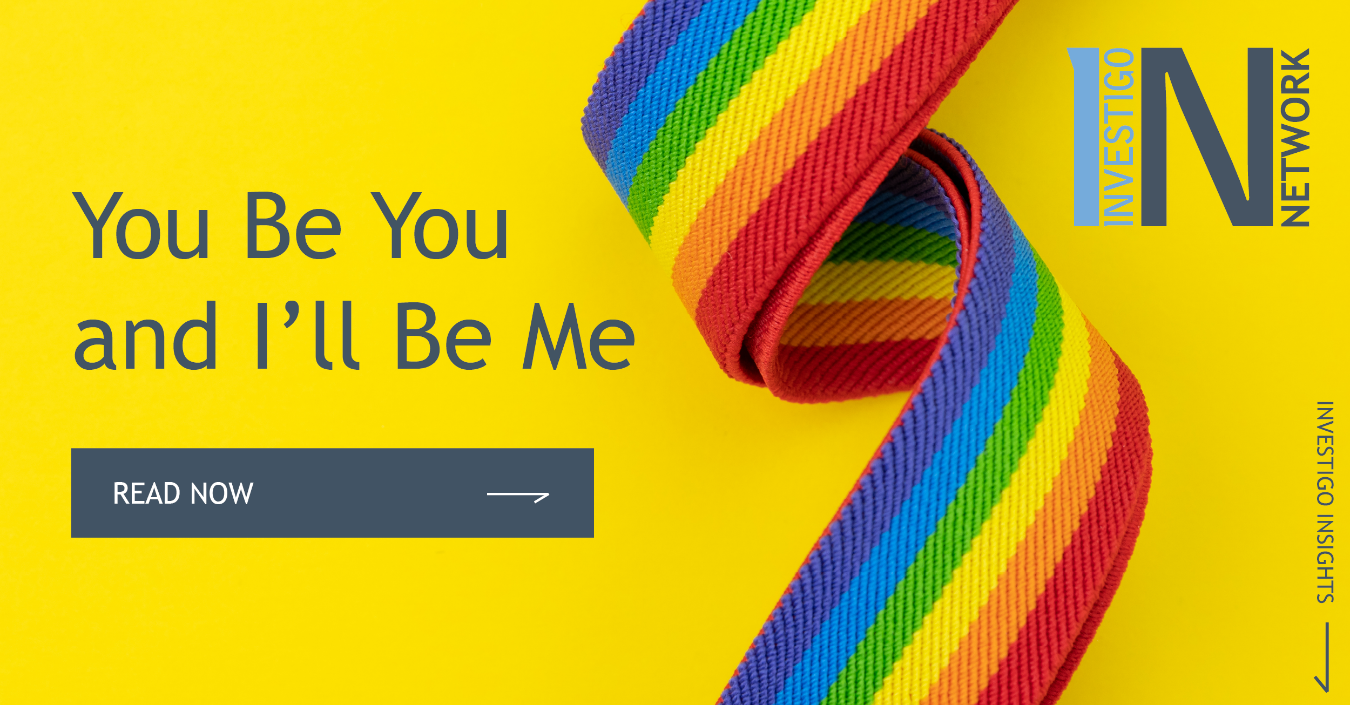
Being ‘out’ in recruitment: what’s changed since 1997?
“You were the best candidate in the assessment centre by far mate but we debated whether or not to hire you because you told me you go to that gay club in town, so we guessed you might be gay”. This was said to me during my second week in my first ever job in recruitment. I vividly recall the moment that I let my guard down during post-interview drinks and told one of the interviewers that I went to that club; I knew it was a gamble because it could ‘out me’ but I also didn’t want to start my career lying about who I was and, after all, this was the 90s not the 50s. As a consequence, I was openly told by one of my (senior) teammates that I’d almost not been hired because of who I was. The year was 1997, I was a fresh grad experiencing all the usual challenges of adjusting to work and in addition, I had to deal with this type of casual homophobia because that’s just how it was for us ‘gay boys’ back then.
As a History of Art graduate I fell into IT recruitment, naïve to the fact that I’d ended up in a sector that was overwhelmingly straight; according to stereotypes gay men are expected to work in the arts, creative and media sectors and leave the world of tech, engineering and science to the ‘real men’. In many respects that feels as true now as it did in 1997. A few months after starting my recruitment career I got a bad cold, once I’d recovered a colleague informed me ‘as a mate’ that my boss had been worried, as she thought I might have AIDS. Those of you who join our TV Club this month and watch ‘It’s a Sin’ will understand how terrifying AIDS was to a gay man in the 80s and 90s, so to hear someone at work say that sent me reeling but I couldn’t tell anyone how upsetting this was and expect them to understand.
Thankfully, since 1997, the world has moved on in many positive ways: discrimination in the workplace based on sexual orientation is illegal (though this doesn’t mean it’s been eradicated), rights such as same sex marriages and adoption have shifted perceptions and in turn this has influenced how people respond to homosexuality. In reality day-to-day change happens very slowly and, as a gay man, I’m conscious of prejudice even in these more enlightened times. Every instance of prejudice stays with you and impacts how you experience the world.
Fast forward to 2016 and my interview with Investigo; I was now an MD interviewing for a job for the first time in 17 years - how would it compare to the 90s? I was at third stage meeting and suddenly found myself right back in 1997 debating when to ‘come out’ as an interviewee, as I needed to know how Investigo would respond to a senior leader who also happened to be gay. Despite my age and experience, I was still nervous about this, would prejudice damage my chances? Lessons learnt years ago lingered as a potential threat, so I was really relieved to be told about the group called ‘Investigay’ (now Investigo Pride).
Marc Lesner founded Investigay, he said “When I first joined Investigo, I was taking a big step into the unknown, having spent the previous 7 years in law and management consulting. I was unsure how comfortable I would feel being out and gay in recruitment, a business that is still seen to be heterosexual male dominated. In my first few weeks I was asked “Which girls do you think are hot?” or “Corrrr, she’s hot isn’t she?!”. Whilst there is nothing sinister in these questions it assumes heterosexuality which is not an inclusive starting point”.
Having seen how having an LGBT group within a large organization could have a positive impact, Marc used his experience at Deloitte to start Investigay back in 2016. One of the newest starters in our New York office, Lauren Siegel, mentioned that knowing such groups existed meant that she knew that Investigo was the right company for her. Marc always wanted to see the evolution of Investigay and the fact that we are even writing these thought pieces for Pride History Month is a reason to be proud.
From my perspective the world of recruitment has come a long way but we shouldn’t delude ourselves that all the work is done, after all I know of only a couple of other gay men in this entire company of 250 people. A recent conversation really brought home to me how challenging it still is to be an openly gay man: my husband’s 15 year old nephew goes to a central London boys’ school which has over 1100 pupils, yet there’s only one ‘out’ gay kid - statistically there must be dozens in a school of that size. In 2021 only one boy at that school has the courage to be himself. London is probably the most liberal, cosmopolitan city on the planet where being gay should be pretty simple but coming out is still hard to do, and if that’s it’s not a reason for us all to embrace the LGBTQ+ agenda then I don’t know what is…
If you would like further information or speak to us, please get in touch with our D&I committee DandI@investigo.co.uk.



